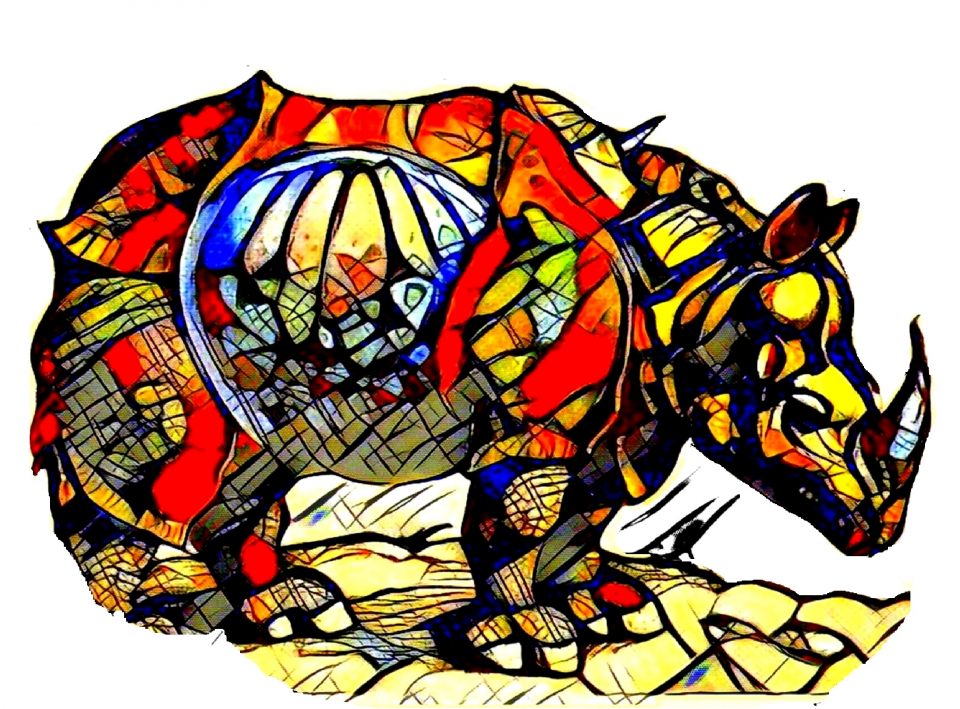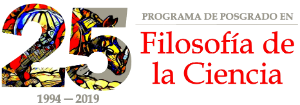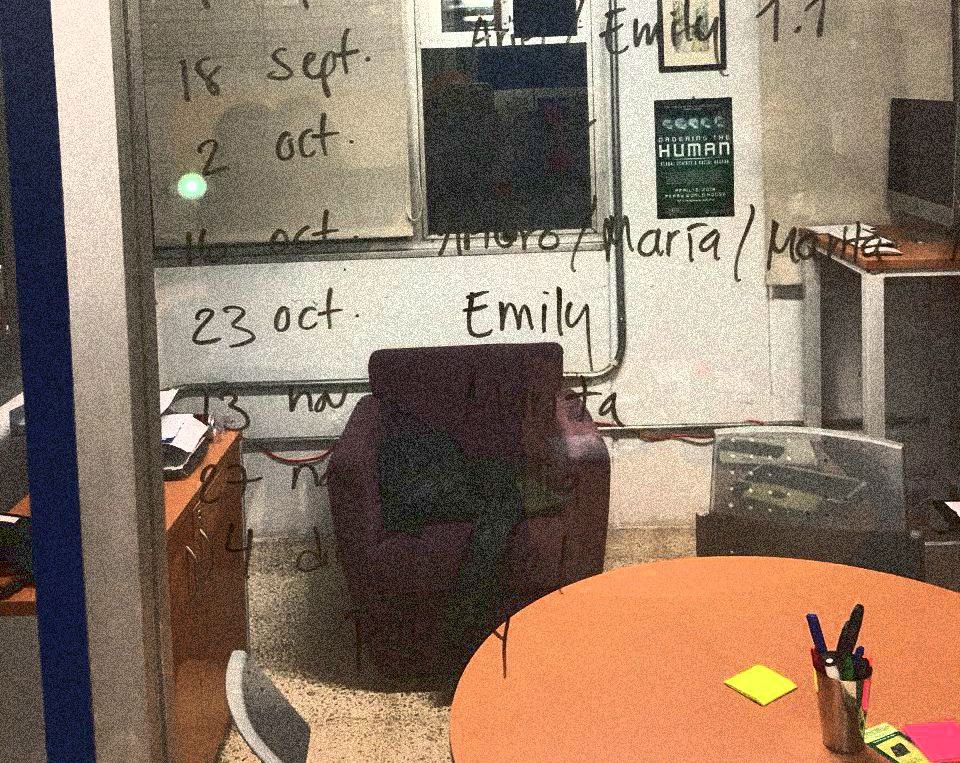

García-Deister, Vivette, Gisela Mateos, Marita Rodríguez, Emilia Ruvalcaba, Edna, Suárez, María Torres, César Torres, Ariel Sánchez, Arturo Vallejo, Emily Vasquez. 2019. "Methodological Interruptions Across the Field and Archive: Doing STS in Mexico.", created by Arturo Vallejo. In Innovating STS Digital Exhibit, curated by Aalok Khandekar and Kim Fortun. Society for Social Studies of Science. August.
Radioisotopes Interrupted, the "Atoms for Peace" Road Trip in Latin America
Non-Ethnography of San Fernando
Bodies and Emotions in Biomedical and Sexuality Fieldwork with HIV
Biobanks Interrupted: the Ethnographic Reconfiguration of Biobank Images
Technology use at the Mexico-US border: A “21st Century” Solution?
Re-thinking Risk, Fieldwork Interrupted
Feminist Studies and the Traditional Way of Cooking Tortillas in Guerrero
I, Pajarero. A Visual-Autonarrative Pajarero. A Visual-Autonarrative Approach to Citizen Science
Placing the Body (or not) in the Field of Citizen-Led Forensics in Mexico
Field Dogs
Throughout our investigative processes, whether in the field or the archive, we have encountered and experienced a number of interruptions. Rather than dismissing them as epistemic obstacles or methodological noise, our position as STSers in a developing country such as Mexico has attuned us to recognize them as provocations that allow us to reposition and retool our approaches. In this exhibit we bring interruptions to the fore, instantiated as a 7.1 magnitude earthquake in Mexico City that abruptly ended a patient interview; the jarring image of a cancerous tumor laid out on a tray instead of pristine slides expected to find catalogued in a biobank; the itinerary of a mobile radioisotope unit disrupted by the crashing of its transport train; or the sudden realization that you are becoming your own subject of study; among others when Mexico’s economic struggles, context of violence and insecurity not only limits access to the field, but can forcefully expel us from it.
Show, don't tell.
Atkinson, Paul, Amanda Coffey, Sara Delamont, John Lofland, y Lyn Lofland, eds. 2007. Handbook of Ethnography. Reprinted. Los Angeles London New Delhi Singapore Washington DC: SAGE.
Bauchspies, Wenda K, y María Puig de la Bellacasa. 2009. “Feminist Science and Technology Studies: A Patchwork of Moving Subjectivities. An Interview with Geoffrey Bowker, Sandra Harding, Anne Marie Mol, Susan Leigh Star and Banu Subramaniam”. Subjectivity 28 (1): 334–44. https://doi.org/10.1057/sub.2009.21.
Charmaz, Kathy, y R. Mitchell. 2007. “Grounded Theory in Ethnography”. En Handbook of Ethnography, editado por Paul Atkinson, Amanda Coffey, Sara Delamont, John Lofland, y Lyn Lofland, Reprinted. Los Angeles London New Delhi Singapore Washington DC: SAGE.
Collins, Harry, y Harold Maurice. 1984. “Concepts and methods of participatory fieldwork”. En Social Researching: Politics, Problems, Practice, 54–69. London and New York.
Creswell, John W., y Dana L. Miller. 2000. “Determining Validity in Qualitative Inquiry”. Theory Into Practice 39 (3,): 124–30.
Duneier, Mitchell. “How Not to Lie with Ethnography.” Sociological Methodology 41, no. 1 (August 2011): 1–11. doi:10.1111/j.1467-9531.2011.01249.x.
Edward J. Hackett, Olga Amsterdamska, Michael Lynch, y Judy Wajcman, eds. 2008. The Handbook of Science and Technology Studies. Third. Massachusetts London, England: The MIT Press Cambridge.
Emerson, Robert M., Rachel I. Fretz, y Linda L. Shaw. 2007. “Participant Observation and Fieldnotes”. En Handbook of Ethnography, editado por Paul Atkinson, Amanda Coffey, Sara Delamont, John Lofland, y Lyn Lofland, Reprinted. Los Angeles London New Delhi Singapore Washington DC: SAGE.
Felt, Ulrike, Rayvon Fouché, Clark A. Miller, y Laurel Smith-Doerr, eds. 2018. The Handbook of Science and Technology Studies. Fourth. Massachusetts London, England: The MIT Press Cambridge.
Gubrium, Jaber F., ed. 2012. The Sage Handbook of Interview Research: The Complexity of the Craft. 2nd ed. Thousand Oaks: SAGE.
Haraway, Donna J. 1995. Ciencia, cyborgs y mujeres. Cátedra. Madrid.
Hess, David. 2007. “Ethnography and the Development of Science and Technology Studies”. En Handbook of Ethnography, editado por Paul Atkinson, Amanda Coffey, Sara Delamont, John Lofland, y Lyn Lofland, Reprinted, 234–45. Los Angeles London New Delhi Singapore Washington DC: SAGE.
Heyl, Barbara Sherman. 2007. “Ethnograhic Interviewing”. En Handbook of Ethnography, editado por Paul Atkinson, Amanda Coffey, Sara Delamont, John Lofland, y Lyn Lofland, Reprinted, 360–71. Los Angeles London New Delhi Singapore Washington DC: SAGE.
Jake Kosek. 2006. Understories: The Political Life of Forests in Northern New Mexico.
Jasanoff, Sheila, Gerald E. Markle, James C. Petersen, y Trevor Pinch, eds. 1995. The Handbook of Science and Technology Studies. Massachusetts London, England: The MIT Press Cambridge.
John M. Johnson, y Timothy Rowlands. 2007. “The Interpersonal Dynamics of In Depth Interviewing”. En Handbook of Ethnography, editado por Paul Atkinson, Amanda Coffey, Sara Delamont, John Lofland, y Lyn Lofland, Reprinted, 99–114. Los Angeles London New Delhi Singapore Washington DC: SAGE.
Latour, Bruno, y Steve Woolgar. 1986. Laboratory life: the social construction of scientific facts. 2nd ed. NJ: Princeton University Press.
Livingston, Julie. 2012. Improvising Medicine: An African Oncology Ward in an Emerging Cancer Epidemic. Duke unIversIty press.
Pestre, Dominique. 2004. “Thirty years of science studies: knowledge, society and the political”. History and Technology 20 (4): 351–69. https://doi.org/10.1080/0734151042000304330.
Pinch, TrevorJ., y Wiebe E. Bijker. 2008. “La construcción social de hechos y de artefactos: acerca de cómo la sociología de la ciencia y la sociología de la tecnología pueden beneficiarse mutuamente”. En Actos, actores y artefactos, 19–63. Argentina: Universidad Nacional de Quilmes.
Rapp, Rayna. 1998. “Refusing Prenatal Diagnosis: The Meanings of Bioscience in a Multicultural World”. Science, Technology, & Human Values 23 (1,): 45–70.
Rooke, Alison. 2009. “Queer in the Field: On Emotions, Temporality, and Performativity in Ethnography”. Journal of Lesbian Studies 13 (2): 149–60. https://doi.org/10.1080/10894160802695338.
Sismondo, Sergio. “Post-Truth?” Social Studies of Science 47, no. 1 (February 2017): 3–6. doi:10.1177/0306312717692076.
Star, Susan Leigh. “The Ethnography of Infrastructure.” American Behavioral Scientist 43, no. 3 (November 1999): 377–91. doi:10.1177/00027649921955326.
Stephens, Neil, y Jamie Lewis. 2017. “Doing Laboratory Ethnography: Reflections on Method in Scientific Workplaces”. Qualitative Research 17 (2): 202–16. https://doi.org/10.1177/1468794116678040.
Stoler, Ann Laura. 2002. “Colonial Archives and the Arts of Governance”. Archival Science 2 (1–2): 87–109. https://doi.org/10.1007/BF02435632.
Yates-Doerr, Emily. 2012. “The Weight of the Self: Care and Compassion in Guatemalan Dietary Choices: Care and Compassion in Guatemalan Dietary Choices”. Medical Anthropology Quarterly 26 (1): 136–58. https://doi.org/10.1111/j.1548-1387.2011.01169.x.
All Innovating STS exhibits are oriented by nine shared questions in order to generate comparative insight. These are:
ARTICULATION: What STS innovations (of theory, methodology, pedagogy...Read more
Furthering its theme, Innovations, Interruptions, Regenerations , the 2019 annual 4S meeting in New Orleans will include a special exhibit, Innovating STS , that showcases innovations ...Read more

In alphabetical order, Ariel, Arturo, César, Emilia, Emily, María, and Marita are the current members of Field Dogs, an STS working group led by Vivette García-Deister, and part of the larger STS research group steered by Edna Suárez-Díaz and Gisela Mateos at UNAM. Our innovation consists in creating a permanent research support group where all levels (masters, doctoral and post-doctoral) and backgrounds (Biology, Physics, Film & Literature, Journalism, Media Studies, Sociomedical Sciences & Sociology) engage in methodological conversation. Here, participant interpellations and methodological interruptions become generative for all. In this web essay we provide concrete examples of how our research has been advanced by events and situations that could have otherwise been considered interference. Our motto: Onward!